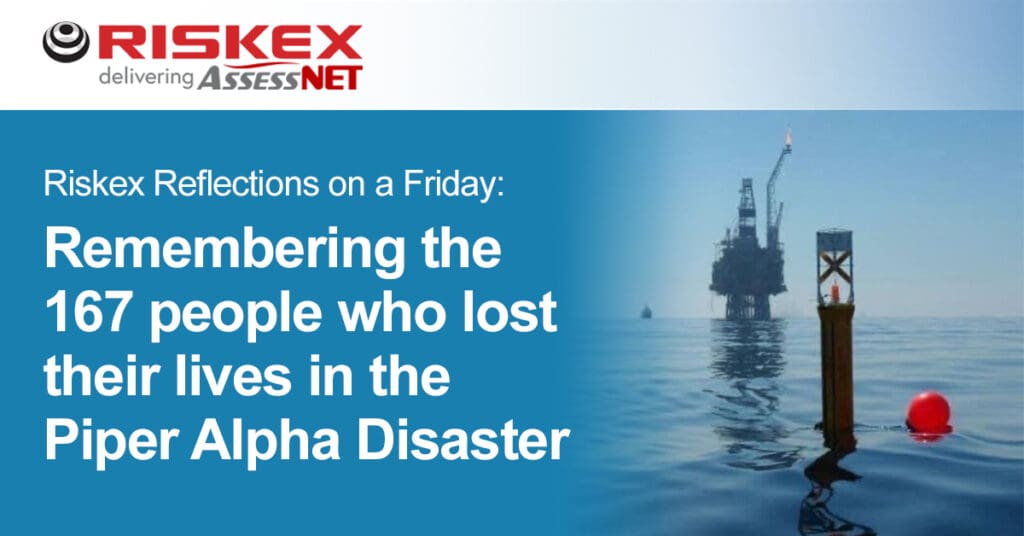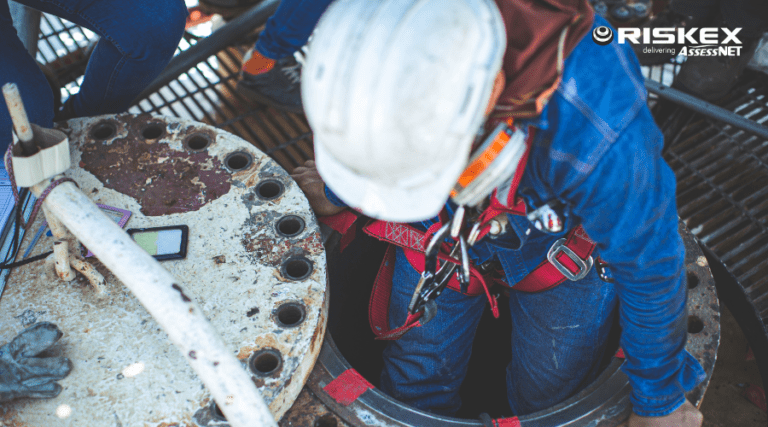Riskex Reflections on a Friday #2: Remembering the 167 people who tragically lost their lives in the Piper Alpha Disaster
Yesterday marked the 35th Anniversary of the Piper Alpha Disaster, the catastrophic offshore oil rig explosion in the North Sea that resulted in the loss of 167 lives and was one of the deadliest offshore oil and gas accidents in history.
Although no criminal charges were ever brought; in the aftermath of the disaster the UK offshore industry accepted every one of the 106 recommendations put forward by the Cullen Inquiry. The Recommendations in the Cullen Enquiry completely reshaped the industry, and changed it into a model widely copied around the world. The lessons learned are as relevant today as they would have been 35 years ago.
A summary of key lessons learned:
- Risk Assessment: The tragic incident underscored the importance of conducting thorough risk assessments. It revealed deficiencies in the identification and evaluation of potential hazards, as well as the lack of effective safety measures in place to mitigate those risks.
- Emergency Response: The disaster exposed shortcomings in emergency response procedures and training. It emphasised the need for robust emergency plans, adequate training for personnel, and regular drills to ensure a prompt and coordinated response in the event of an emergency.
- Communication and Coordination: Communication failures during the Piper Alpha tragedy hindered effective response efforts. As a result, the importance of clear communication and coordination between different stakeholders, including offshore personnel, emergency services, and onshore management, became evident.
- Safety Regulations and Standards: The Piper Alpha disaster led to a comprehensive review of safety regulations and standards in the offshore oil and gas industry. This resulted in the implementation of more stringent regulations, improved safety standards, and the establishment of regulatory bodies to monitor compliance.
- Asset Integrity: The Piper Alpha incident highlighted the criticality of asset integrity management. It emphasised the importance of regular inspections, maintenance, and monitoring of equipment and infrastructure to prevent catastrophic failures.
- Human Factors: The tragedy shed light on the significance of human factors in safety. It emphasised the need for proper training, competent personnel, effective communication, and decision-making processes that consider human limitations and potential errors.
- Lessons Sharing and Learning: The Piper Alpha disaster prompted a greater emphasis on sharing lessons learned across the industry. It led to the establishment of platforms for exchanging information and best practices to prevent similar incidents in the future.
- Safety Culture: The Piper Alpha disaster highlighted the need for a proactive approach to safety, where everyone from management to workers prioritises safety as a core value.






